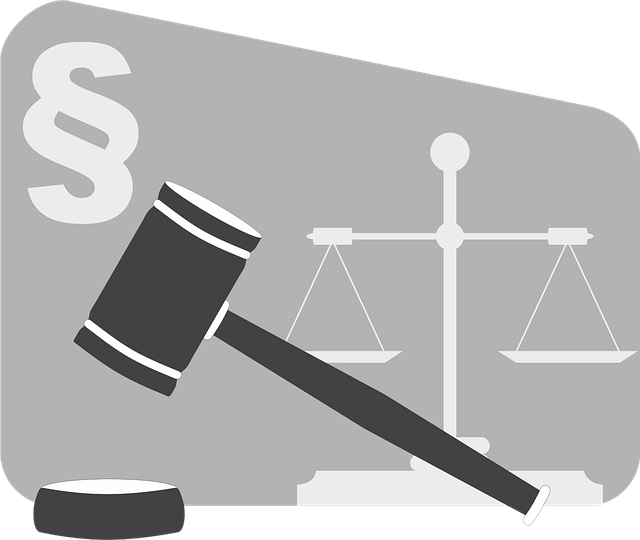This text compares administrative and civil proceedings in antitrust violation cases, emphasizing key differences that impact outcomes. While regulatory bodies like the FTC or DOJ initiate administrative actions focusing on penalties and deterrence, private parties file civil lawsuits seeking damages for specific harm. Understanding these differences between administrative and civil proceedings is crucial for businesses navigating antitrust law to ensure compliance and avoid significant financial burdens. Both approaches have proven effective in promoting fair competition, with successful cases resulting in market accountability.
“Antitrust Violation Cases: Navigating Legal Complexities and Consequences
In an era of corporate dominance, understanding antitrust laws is paramount for global markets’ health. This article delves into the intricate world of antitrust violations, focusing on the nuances between administrative proceedings and civil lawsuits. We explore how regulatory bodies initiate cases, dissecting key differences in legal strategies, outcomes, and penalties. By analyzing high-profile incidents, we uncover vital lessons learned, emphasizing the importance of compliance and the significant impact of these cases on businesses worldwide.”
- Understanding Antitrust Violation Cases
- – Definition and significance of antitrust laws
- – Common behaviors that violate antitrust regulations
Understanding Antitrust Violation Cases

Antitrust violation cases involve complex legal battles where businesses or individuals are accused of hindering fair competition in the marketplace. Understanding these cases requires a grasp of two primary legal procedures: administrative and civil proceedings. The former, initiated by regulatory bodies like the Federal Trade Commission (FTC) or the Department of Justice (DOJ), focuses on the investigative and enforcement process at all stages. This includes gathering evidence, conducting hearings, and imposing penalties or remedies. In contrast, civil proceedings are brought by private parties who believe they’ve suffered antitrust injuries. These cases aim for compensation through damages awards rather than regulatory intervention.
While both types of cases share a common goal of upholding fair competition, their approaches differ significantly. Administrative actions tend to be more inquisitorial, with the government bearing the burden of proving violations. In contrast, civil lawsuits require plaintiffs to demonstrate they’ve suffered specific harms due to antitrust breaches. Moreover, while administrative proceedings can result in significant penalties and structural remedies, civil cases often lead to monetary damages or injunctions against future misconduct, with the ultimate goal of securing complete dismissal of all charges for the defendant if found innocent.
– Definition and significance of antitrust laws

Antitrust laws are a set of regulations designed to promote fair competition in the market by preventing businesses from engaging in anti-competitive practices. These laws aim to protect consumers by ensuring that markets function efficiently, fostering innovation, and maintaining healthy economic competition. Violations of antitrust laws can lead to significant legal consequences for companies involved, including hefty fines, market share restrictions, and even the dissolution of a company found guilty of collusion or price-fixing.
Understanding the differences between administrative and civil proceedings is crucial when addressing antitrust violation cases. Administrative proceedings are typically initiated by regulatory bodies to enforce antitrust laws, focusing on assessing penalties and remedies. In contrast, civil proceedings involve private parties who have suffered harm due to antitrust violations, seeking damages or injunctive relief. For corporate and individual clients alike, the outcome of these cases can result in a complete dismissal of all charges or substantial financial burdens, highlighting the importance of legal representation when navigating these complex white-collar and economic crimes.
– Common behaviors that violate antitrust regulations

Antitrust violations can manifest through various behaviors that restrict competition or create market monopolies. Common examples include agreements between competitors to fix prices, allocate markets, or limit production—a practice known as collusion. Another violation occurs when a single company dominates a particular market, engaging in exclusive dealing or imposing unfair terms on rivals and customers alike. This behavior can stifle innovation, raise prices, and reduce consumer choice.
Understanding the nuances of antitrust regulations is crucial, especially when considering the differences between administrative and civil proceedings. Administrative actions are typically initiated by regulatory bodies to prevent or stop an alleged violation, while civil lawsuits involve private entities seeking damages or injunctive relief. An unprecedented track record of achieving extraordinary results in both areas can significantly impact businesses, ensuring compliance and promoting fair competition within the marketplace.
Antitrust violation cases are crucial for maintaining a fair market landscape. Understanding both administrative and civil proceedings is essential in navigating these complex legal battles. While administrative actions focus on quick, flexible remedies, civil litigation offers broader compensatory measures. Recognizing the differences between these approaches enables stakeholders to strategize effectively, ensuring antitrust laws protect consumers and foster healthy competition without undue restrictions.






